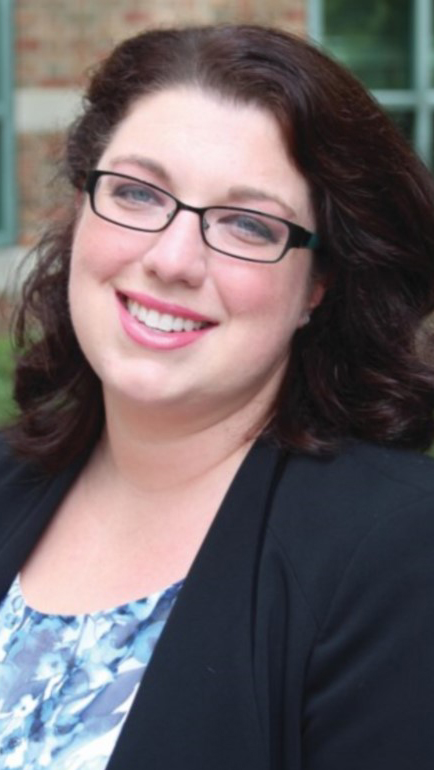
DETROIT – Neuroscience researcher Ana Daugherty, Ph.D., received a two-year grant from the American Federation for Aging Research (AFAR) and the Glenn Foundation for Medical Research to identify the causes of iron accumulation in the brain, a condition associated with cognitive decline. The prestigious grant supports early career scientists who are emerging leaders in their fields and studying the aging process. Applications are subjected to rigorous review: only 14 recipients were selected from 83 applicants.
The $150,000 award provides flexible support to promising researchers at an early juncture when funding can be hard to obtain.
“These grants provide a critical foothold for early career investigators to conduct pioneering research,” said Mark Collins, president of the Glenn Foundation. “They gain insights into the fundamental biology of aging which can help extend our years of health as we grow older.”
Daugherty is an assistant professor at WSU jointly appointed to the Department of Psychology and the Institute of Gerontology, where she directs the Healthy Brain Aging Laboratory. The study will test the hypothesis that diminished energy production by cell mitochondria, along with inflammation, cause the accumulation of iron in the brain and subsequent cognitive decline.
Daugherty is a national leader in using MRI to detect brain iron, one of several measures used to test what mechanisms drive human cognitive aging and when they take effect across the lifespan.
Daugherty’s team will leverage 22 years of longitudinal data gleaned from the Detroit Aging Brain Study (DABS) that she co-directs. DABS has charted changes in brain structure and function across the lifespans of 650 adults, age 18-90 years.
“Throughout the years, we’ve developed specialized MRI sequences to detect brain iron,” Daugherty said. “We pair that with highly innovative methods to quantify cell energy levels and identifying DNA mutations that predispose us to different levels of energy metabolism. This constellation of risk factors lets us know what drives brain aging at certain points in the lifespan.”
Results of the research will bring a better understanding of the risks in early life that can lead to cognitive decline in later life. Developing interventions to mitigate those risks is especially critical for vulnerable populations such as African Americans living in Detroit.
“We are working to understand the events that contribute to declines in thinking and memory as the brain ages,” Daugherty said. “With early detection we have new opportunities to promote healthier aging across a longer portion of the lifespan.”
